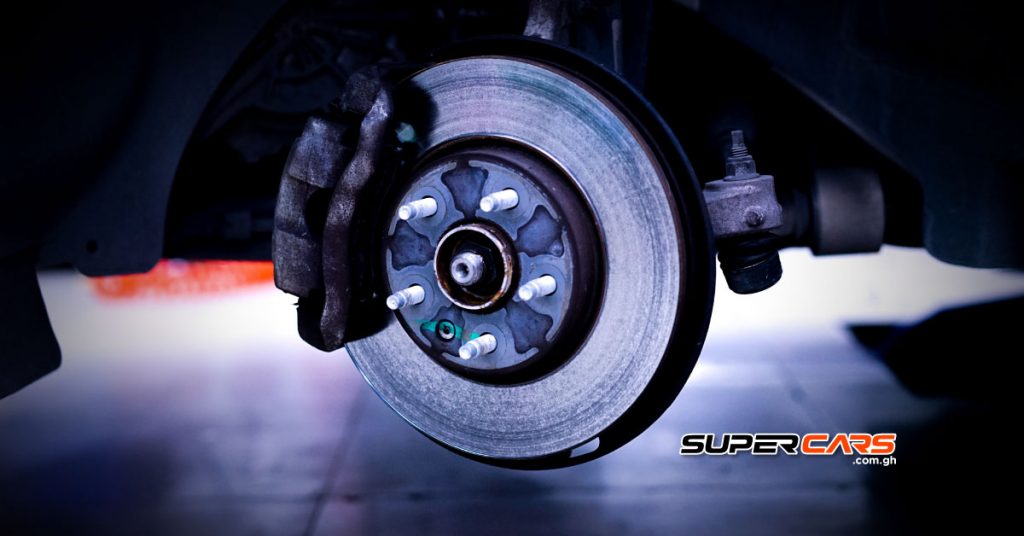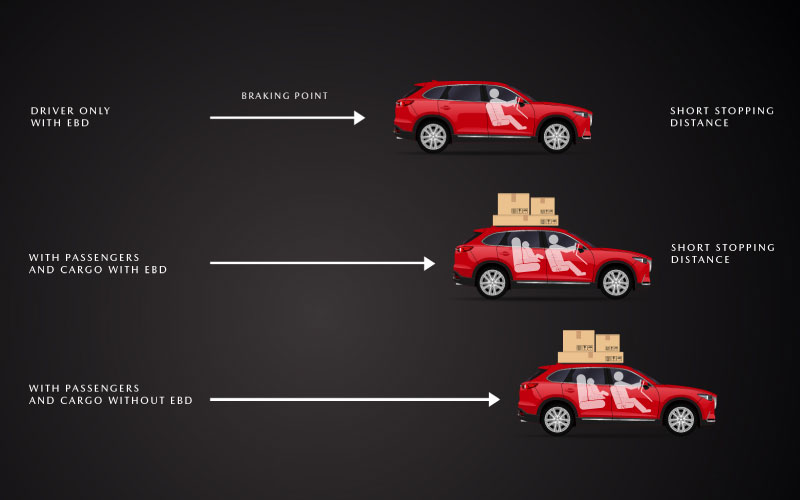WHAT IS ELECTRONIC BRAKEFORCE DISTRIBUTION (EBD) BRAKING SYSTEM & HOW IT WORKS
- supercars.com.gh
- August 6, 2022

Electronic Brakeforce Distribution, popularly known as EBD, is a crucial safety mechanism that has been made mandatory on all modern vehicles. This tech provides added control to the driver when pushing on the brake pedal of their cars.
Another name for the EBD is Electronic Brake-force Limitation (EBL), let’s dive deeper into what it is and how it functions.
WHAT IS THE EBD BRAKING SYSTEM
EBD technology ensures that the correct brake force is applied to each wheel of your vehicle. This system is a combination of electronic and hydraulic technology. This combination is responsible for adjusting the pressure applied to each brake individually to provide more robust and safer braking in emergencies such as a head-on collision.
HOW DOES THE EBD FUNCTION IN YOUR CAR
When you apply the brake while driving, your car’s brakes are forced by hydraulic wheel cylinders to press against the inner surface of your tire’s rotating brake drum. According to the force applied, this contact creates friction, which enables the tires to slow down or stop.
However, most driving situations that require a hard applied brake would cause the car to skid (uncontrollable movement caused by a vehicle’s wheels losing traction).
A significant reason for skid is your vehicle’s undistributed weight. EBD works on the premise that the weight supported by your car’s wheels (on all sides) is not even. The wheel beneath any substantial load will require more braking force when bringing the vehicle to a stop than other wheels. This process reduces the likelihood of losing control or skidding.
An EBD system can detect how much weight each wheel is supporting and change the amount of braking power properly required by each wheel. This process prevents your car from losing control and skidding when you try to manoeuvre while applying the brake.

WHAT IS ABS AND HOW IT IS DIFFERENT FROM EBD
Anti Lock braking system (ABS) is a four-wheel anti-lock system that assists you in steering when using the brakes on your car in an emergency. This technology includes clever wheel sensors that detect when your car’s tires begin to lock up. The brakes are rapidly applied and released in a sequential rhythm to prevent your tires from sliding.
They are most effective when your vehicle’s tires are in good condition and adequately filled. While the ABS ensures that the wheels do not lock under heavy braking, EBD ensures that each wheel receives the appropriate braking force. So, the EBD compliments the effectiveness of ABS technology in your vehicle.
Vehicle Manufacturers are on the lookout for ways to make driving our vehicles as safe and easy as possible. The future likely holds significant advancements in the EBD and ABS technology, making the process of controlling our cars better than ever.
Don’t go yet! If you wish to keep learning important information such as this, follow our blog and guides, and we will keep you updated with all the latest news!
Recent Post
Have Any Question?
If you have a question, call or email us.
We will get back to you as soon as possible!









